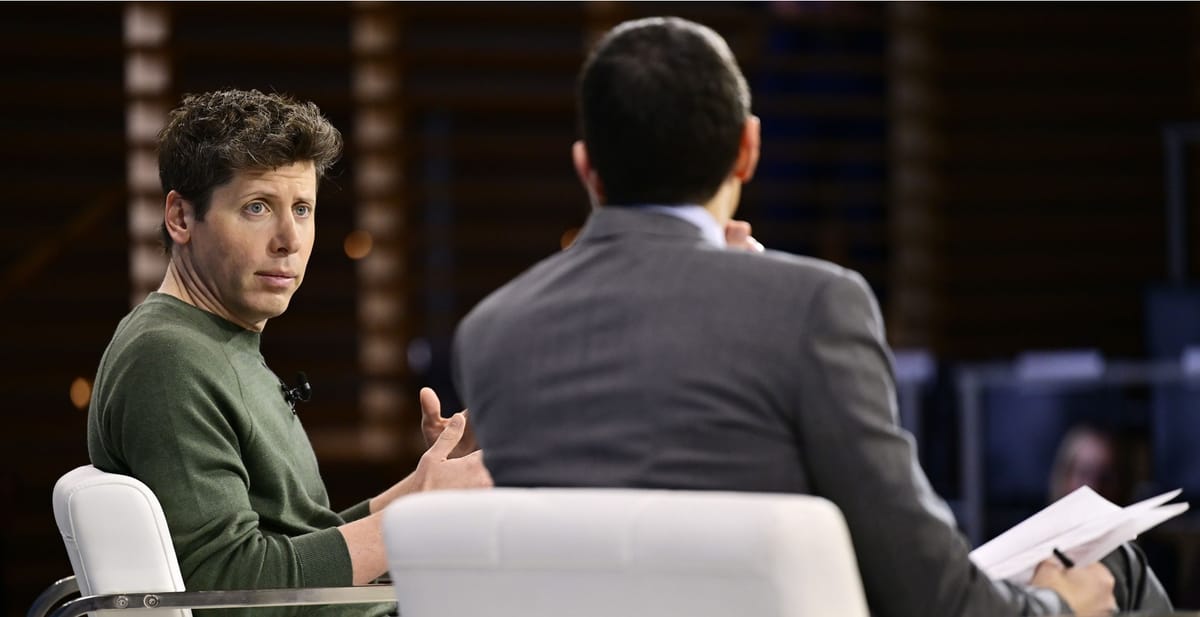
Sam Altman, CEO of OpenAI, made headlines at the 2024 New York Times DealBook Summit, predicting that artificial general intelligence (AGI) will arrive sooner than anticipated but will have less immediate societal impact than many expect. In conversation with Andrew Ross Sorkin, Altman addressed AGI’s transformative potential, OpenAI’s partnerships and relationship with Microsoft, and the need for new economic models to support creators in an AI-driven world.
Key Points
- Altman anticipates AGI’s arrival within a few years, emphasizing its potential to drive economic growth but downplaying immediate societal disruption.
- While praising the partnership with Microsoft, Altman acknowledged tensions over compute resources and scaling demands.
- Altman defended OpenAI’s iterative approach to deploying AI, stressing the need for societal co-evolution with the technology.
- Altman advocated for novel economic models, such as micro-payments, to reward creators for AI-generated content derived from their works.
Why it matters: Sam Altman’s remarks offer a rare, behind-the-scenes glimpse into how leaders at the forefront of AI innovation balance technological ambition with societal responsibility. His expectation that AGI will emerge earlier than many predict sets a formidable pace for industry, regulators, and the public alike.
The big picture: Altman’s declaration that AGI is “closer than most people think” surprised many. He projected that AGI will accelerate economic growth and transform industries but argued its initial impact on daily life will be less profound than commonly feared. While acknowledging potential upheaval in the economy and job market, he remains optimistic about humanity’s ability to adapt over time.
He argues that the most dangerous challenges may lie not in the achievement of AGI itself, but in the subsequent “long continuation” toward superintelligence.
Relationship with Microsoft: OpenAI’s reliance on Microsoft has driven innovation but also created friction. Altman revealed that OpenAI’s rapid scaling—with over 300 million weekly active ChatGPT users—has strained compute resources. Despite tensions, Altman described the partnership as “tremendously positive” and expressed optimism about future collaboration. “On the whole, I think our incentives are pretty aligned,” he noted, while addressing the challenges of managing competing priorities.
Company structure: The company is also grappling with structural changes to meet its capital requirements. While originally founded as a nonprofit, OpenAI is exploring new configurations that could include a public benefit corporation partially owned by a nonprofit, though Altman emphasized that "nothing is decided."
AI safety: Over the years, criticism of OpenAI’s approach to safety has grown, with some former employees arguing the company prioritizes speed over caution. Altman defended OpenAI’s strategy of iterative deployment, which allows society and technology to co-evolve. “We need to start while the stakes are lower,” he explained, advocating for real-world testing to uncover potential risks and refine safety protocols.
AI ethics: As AI-generated content becomes ubiquitous, Altman called for innovative revenue-sharing mechanisms to support creators whose work informs AI models. He proposed micro-payments and opt-in systems for name and likeness usage as potential solutions. While affirming AI’s “right to learn” under copyright law, he stressed the importance of ensuring economic equity for content creators.
12 Days of Shipmas: To celebrate the holiday season, Sam announced the company will be hosting a “12 Days of Shipmas” event. Each weekday for 12 days, the company will launch a new feature or demonstration, highlighting the rapid pace of innovation and user-focused advancements. Altman hinted at “continued progress” but remained tight-lipped on specifics, building anticipation for the upcoming releases.
Bottomline: Altman’s remarks at the DealBook Summit underscored OpenAI’s dual mission: advancing AI capabilities while navigating the ethical, economic, and societal challenges they bring. His vision reflects optimism in humanity’s ability to adapt to technological revolutions and create systems that distribute AI’s benefits equitably.

